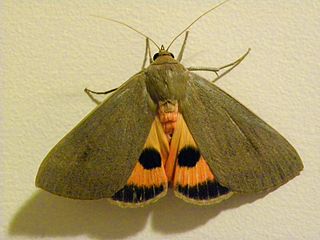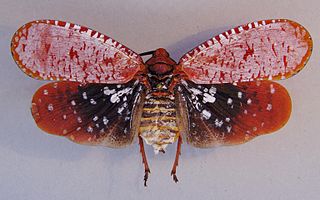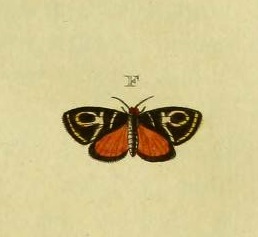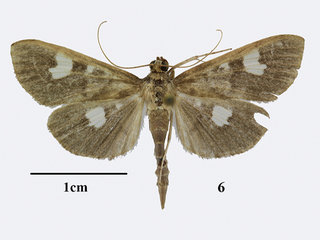
The Archipini are a tribe of tortrix moths. Since many genera of these are not yet assigned to tribes, the genus list presented here is provisional.

The Pyralini are a tribe of snout moths described by Pierre André Latreille in 1809. They belong to the subfamily Pyralinae, which contains the "typical" snout moths of the Old World and some other regions. The genus list presented here is provisional.

Amnicola is a genus of very small freshwater snails which have an operculum. Amnicola species are aquatic prosobranch gastropod mollusks in the family Amnicolidae according to the taxonomy of the Gastropoda.
Somatogyrus is a genus of very small freshwater and brackish water snails that have an operculum, aquatic gastropod micromolluscs in the family Lithoglyphidae.

Lucilia is a genus of blow flies in the family Calliphoridae. Various species in this genus are commonly known as green bottle flies.

The subfamily Aphaeninae is a group of hemipteran insects, especially abundant and diverse in the tropics, in the family Fulgoridae, or "lanternflies".

Orthonama obstipata, the gem, is a moth of the family Geometridae. The species was first described by Johan Christian Fabricius in 1794. It is a cosmopolitan species. In continental Europe though in the northeast, its range does not significantly extend beyond the Baltic region and it is absent from northern Russia. This well-flying species is prone to vagrancy and able to cross considerable distances of the open sea; it can thus be regularly found on the British Isles and even on Iceland.

Calamotropha is a genus of moths of the family Crambidae.

Donacaula is a genus of moths of the family Crambidae. The genus was erected by Edward Meyrick in 1890.

Herpetogramma is a genus of moths in the family Crambidae described by Julius Lederer in 1863. It currently comprises 106 species that are found in North America, Eurasia, Australia, New Zealand, Central and South America. Of the few species where host plants are known, the larvae mostly feed on grasses.

Scirpophaga is a genus of moths of the family Crambidae described by Georg Friedrich Treitschke in 1832. Asian species include significant rice stemborer pests.
Tolpia is a genus of moths of the family Erebidae erected by Francis Walker in 1863. The genus used to be included in the family Noctuidae.

Semiothisa is a genus of moths in the family Geometridae. It was erected by Jacob Hübner in 1818.

Zermizinga is a moth genus in the family Geometridae erected by Francis Walker in 1863. Species within this genus include Zermizinga sinuata, the lucerne looper or spider moth, which was described by Warren in 1897, as well as Zermizinga indocilisaria, which was described by Walker in 1863.

Hemerophila is a genus of moths in the family Choreutidae. A number of species was recently transferred to the genus Ornarantia.

The Chrysauginae are a subfamily of snout moths. They are primarily Neotropical and include about 400 described species.

Tingena is a genus of the concealer moth family (Oecophoridae). This genus is endemic to New Zealand.

Agroterini is a tribe of the species-rich subfamily Spilomelinae in the pyraloid moth family Crambidae. The tribe was erected by Alexandre Noël Charles Acloque in 1897.

Margaroniini is a tribe of the species-rich subfamily Spilomelinae in the pyraloid moth family Crambidae. The tribe was erected by Charles Swinhoe and Everard Charles Cotes in 1889, originally as family Margaronidae.

















